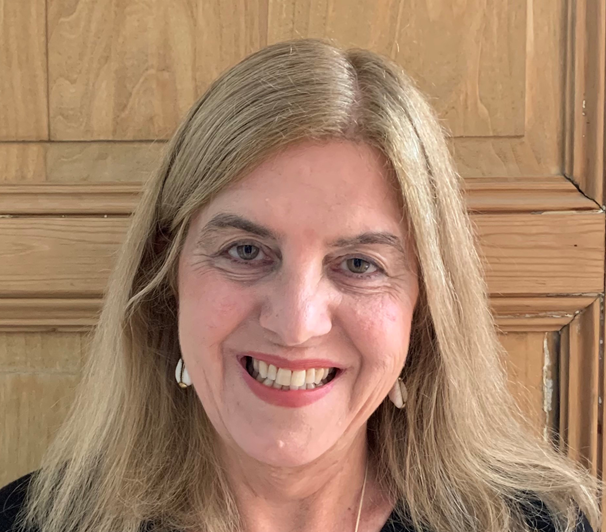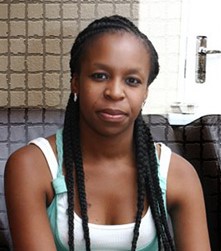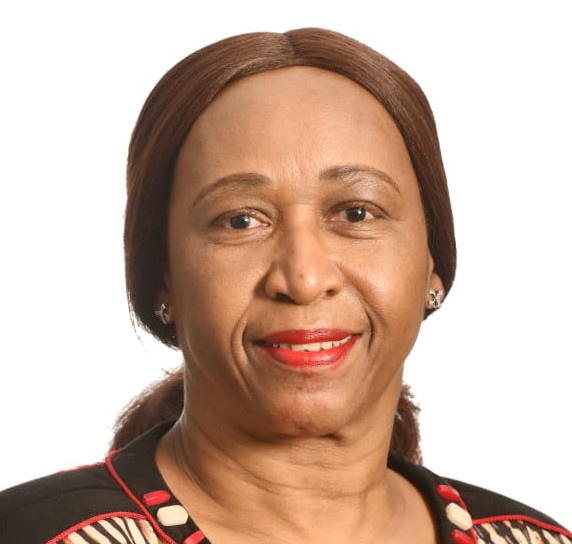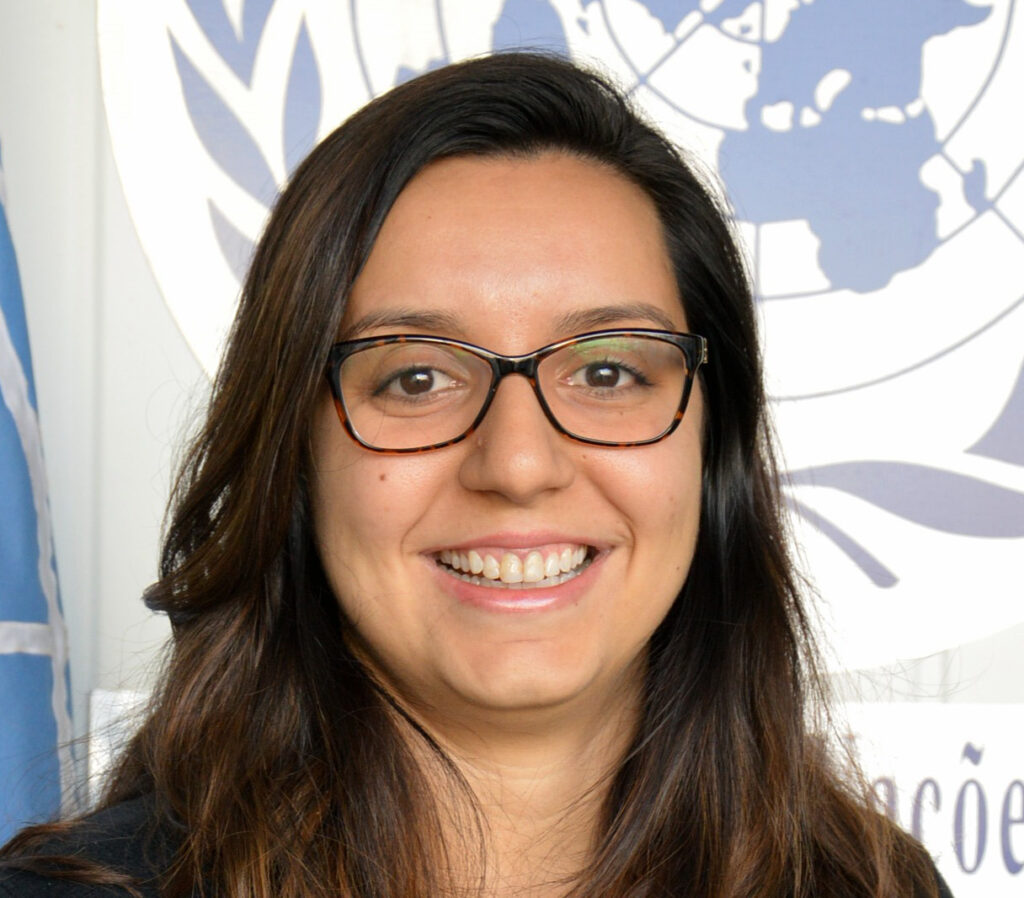Agathe Lawson, UNFPA Officer-in-Charge
This year October 11 marked International Day of the Girl Child, celebrated under the theme “Digital generation, our generation”. To mark the day, the Mail & Guardian and the UNFPA and UNICEF Joint Programme with the support of the Government of Canada, and in partnership with the British Council and the Commission for Gender Equality (CGE), held a free live webinar entitled “Investing in the health and education of the girl child during COVID- 19” and convened to highlight the multiple challenges faced by the girl child.
 Moderator:Yolokazi Mfuto, Youth Advocate
Moderator:Yolokazi Mfuto, Youth AdvocateGirls and young women are the drivers of sustainable development and powerful agents of change. Evidence from around the world confirms that investing in girls and young women creates a ripple effect that yields multiple benefits, not only for individual women, but for families, communities, and countries. Yet, noted UNFPA Officer-in-Charge, Dr Agathe Lawson, as she opened the webinar, that despite what we all know, too many girls and young women are still held back by social norms and affected negatively by harmful cultural practices influencing their educational rights and opportunities. They are deprived of access to health services, they confront barriers to education, are vulnerable to gender-based violences, and face discrimination in political, legal and economic spheres.
Young vibrant youth advocate and webinar moderator, Ms. Yolokazi Mfuto, noted that the outbreak of the Covid-19 pandemic negatively impacted years of progress made towards gender equality and that girl children are always at the receiving end of violence and deprivation. She also mentioned that there are seldom days set aside or platforms created to celebrate them.
 Caroline Grant, Senior Advisor, British Council
Caroline Grant, Senior Advisor, British CouncilDiscussing critical barriers to girls’ education, Ms. Caroline Grant, the Senior Adviser English for Education Systems & Schools Lead at the British Council, highlighted teacher attitudes, practices and differential expectations of boys and girls in the classroom, including gaps in skills and knowledge for teachers in gender-sensitive pedagogy. Sharing findings from the five recent countries surveyed in the Connecting Classrooms for Global Learning (CCGL) Education Resilience research, she noted that teachers and school leaders highlighted increases in incidents of abuse and exploitation, both within and outside the home. The research indicated that any improvements in education for girls requires disciplined data and a sense of context, acknowledging that all stakeholders must be involved, from teachers, parents to communities.
Grant shared that the British Council advocates for effective whole-school gender responsive approach and argues that girls’ education is the most powerful investment for our collective future. It acknowledges that the ripple effect of positive change occurs when a girl gets an education. This strengthens economies, reduces inequality and creates more opportunities for everyone to succeed. She further advanced that the British Council is engaging in deliberate strategies to support the re-entry and support for dropout learners such as pregnant girls, young mothers and child labourers, including through non-formal pathways (EDGE) and a hybrid approach to teaching.
 Lebogang Schultz, HIV Specialist, UNICEF
Lebogang Schultz, HIV Specialist, UNICEFHighlighting how COVID- 19 and school closures led to increases in adolescent pregnancy due to challenges in accessing sexual and mental health services, including SRH, HIV & GBV services and mental health services, the Commission for Gender Equality Chairperson, Ms. Tamara Mathebula, emphasised the need to invest in SRH and ensure that digital technologies open new opportunities to have the voices of girls, particularly those from remote locations, heard and taken into account. She suggested that access to education about SRHR issues is something the Commission pays particular attention to and that the explosion of teenage pregnancy in South Africa during COVID- 19, requires systematic plans to create the necessary changes.
Reinforcing this notion, Caroline Grant, suggested that the role of teachers is very important when addressing the phenomenon of teenage pregnancies as teachers often have different expectations of the genders, and inclusive pedagogy is a strategy that needs to be adopted more widely. Grant then related “Fatima’s story”, which illustrates how foundational literacy helps to delay early marriage of young girls in Northern Nigeria and elsewhere.
 Tamara Mathebula, Chairperson, Commission for Gender Equality
Tamara Mathebula, Chairperson, Commission for Gender EqualityA call was made by the participants for collective action and increased investments in the health and education of the girl child to address her vulnerabilities in the midst of the pandemic.
Talking about some of the programme interventions from the Joint UNFPA/ UNICEF Programme, Ms. Sarah Reis, a Gender Specialist at UNFPA, stated that the programme is trying to support those who are left furthest behind, which are mainly young women and girls. She stated that support is provided to social services, and addressing communities to, among others, help improve health and reduce GBV. Health services may be the only services available in remote rural areas, but they are often a critical entry point to referrals to other social services; there are also often connections between service providers, and this can improve SRHR outcomes.
 Sarah Reis, Gender Specialist, UNFPA
Sarah Reis, Gender Specialist, UNFPAShe noted that there is often a stigma and limited knowledge about accessing services, and this is something that the joint programme is addressing. A knowledge, attitudes and behaviour survey was conducted by the Joint UNFPA/ UNICEF Programme, and as stated by Ms. Lebogang Schultz, HIV Specialist at UNICEF, it found that the definition of sexual reproduction and health differed between young people, especially between the rural and urban youth; the rural youth were more reserved and linked it to family health. She stated that a concerted effort needs to go into investing in adolescent health services and that healthcare workers at these clinics must be trained on how to handle young people’s sexual issues — without judgement.”
In summing up Dr. Lawson said that “Young girls in rural areas suffer the most, and more effort must be made to reach them.” She hoped that some of the issues raised would be taken up in other platforms; and boys must be included so that they learn to treat girls with greater respect